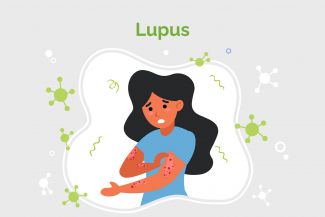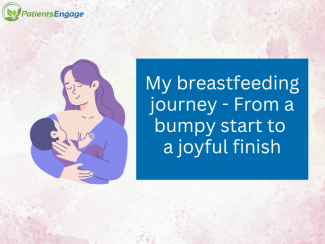
There are several types of lupus:
1. Systemic lupus erythematosus (SLE) is the form of the disease that most people are referring to when they say “lupus”. The word “systemic” means the disease can affect many parts of the body. Although SLE usually first affects people between the ages of 15 and 45 years, it can occur in childhood or later in life as well.
2. Discoid lupus erythematosus is a chronic skin disorder in which a red, raised rash appears on the face, scalp, or elsewhere. The raised areas may become thick and scaly and may cause scarring. The rash may last for days or years and may recur. A small percentage of people with discoid lupus have or develop SLE later.
3. Sub-acute cutaneous lupus erythematosus refers to skin lesions that appear on parts of the body exposed to sun. The lesions do not cause scarring.
4. Drug induced lupus is a form of lupus caused by medications. Many different drugs can cause drug induced lupus. They include some anti-seizure, high blood pressure, and thyroid medications; Antibiotics and Antifungals; & oral contraceptive pills. Symptoms are similar to those of SLE, and they typically go away completely when the drug is discontinued.
5. Neonatal lupus is a rare disease that can occur in newborn babies of women with SLE, Sjögren’ssyndrome, or no disease at all. Scientists suspect that neonatal lupus is caused inpart by auto-antibodies in the mother’s blood. At birth, the babies have a skin rash, liver problems and low blood counts. These symptoms gradually go away over several months. In rare instances, babies with neonatal lupus may have congenital heart block, a serious heart problem in which the formation of fibrous tissue in the baby’s heart interferes with the electrical impulses that affect heart rhythm.
It is important for women with SLE or other related autoimmune disorders to be under a doctor’s care during pregnancy. Doctors can now identify mothers at highest risk for complications, allowing for prompt treatment of the infant at or before birth.
SLE can also flare during pregnancy, and prompt treatment can keep the mother healthier longer.
What are the complications of lupus?
If your symptoms of lupus are mild or well-controlled, you may find it barely affects your day-to-day life. However, over a period of time (10 years or more), lupus may lead to the following complications.
- Kidneys - serious kidney damage is a primary cause of death for lupus sufferers.
- Central nervous system - lupus can cause headaches, dizziness, memory problems, seizures and behavioural changes.
- Blood and vessels - lupus causes an increased risk of anaemia, bleeding, blood clotting and vessel inflammation
- Lungs – non-infectious pneumonia and difficulty breathing due to inflammation of the chest cavity are more likely with lupus
- Heart - heart muscle and artery inflammation are more likely with the disease, and lupus increases the chances of cardiovascular disease and heart attacks
- Infection - lupus treatments tend to depress the immune system making your body more vulnerable to infection
- Cancer - lupus increases the risk of cancer, especially of non-Hodgkin's lymphoma, lung cancer, and liver cancer
- Bone tissue death - a lower blood supply to bone tissue leads to tiny breaks and eventual death of bone. This is most common in the hip bone.
- Pregnancy - lupus increases the risk of miscarriage, hypertension during pregnancy, and preterm birth

















